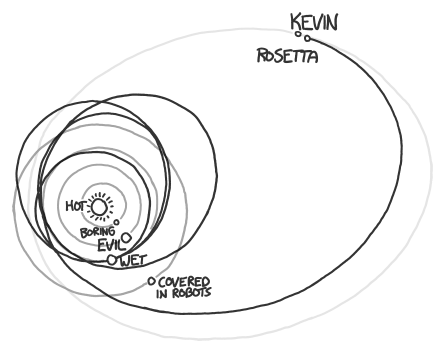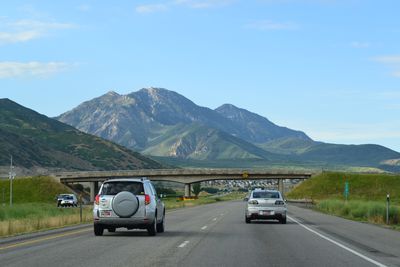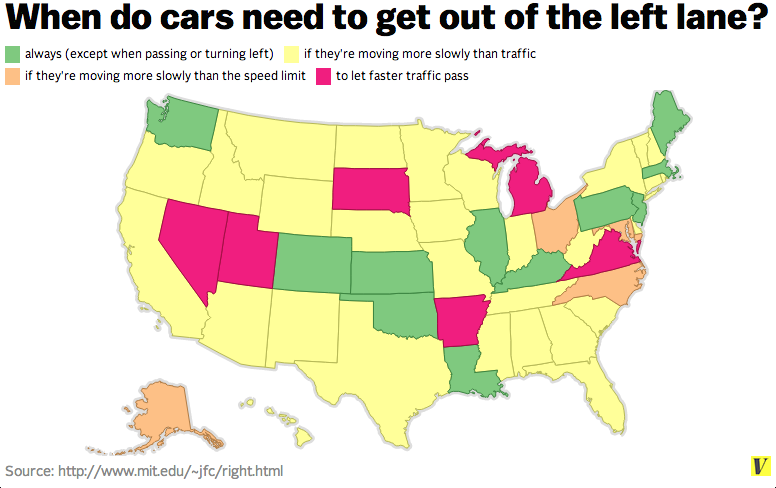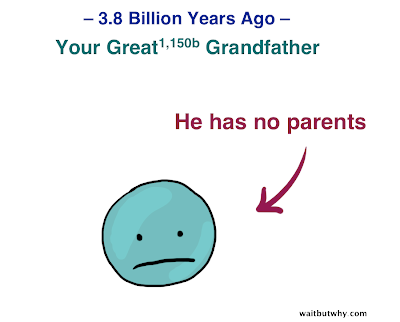As you start reading this article, let's list some questions you haven't asked yourself in
a while: awhile:
- Why do I exist?
- Why do I look the way I do?
- Where do the genes come from that make me who I am? If I trace those genes back far enough, do things start to get superbly weird, so weird that a series of low-grade Wait But Why drawings would need to get involved?
In order to get to the bottom of things, let's start at the present and work our way back, tracing our genes at major steps along the way.
We begin with you. I don't know you, but I can tell you look something like this:
To keep things simple, we're going to stick with your patriline, the male lineage of your DNA.
So moving one step back, we have your father:
We then get to your grandfather, great grandfather, and eventually, your great great grandfather, who was likely born sometime between 1825 and 1875. He looked like this:
Your great great grandfather lived most of his life without running water or electricity, and he was probably more racist than you are. You've never met him, but without him, you wouldn't exist.
Now we move to his father, his father's father, and so on—let's jump back 18 generations to your [great x 20] grandfather (putting the number of "great"s as the superscript number):
Your great20 grandfather kept it real. When he wasn't torturing somebody, he was being tortured himself. When he wasn't catching the Black Plague and dying, he was slaughtering women and children in the Crusades. And weirdly, he might have had the same last name as you.
If he could meet you, he'd be blown away by the ease of your current pussy existence. But not as blown away as your great500grandfather would be.
Your great500grandfather didn't spend years toiling over which career would be the best expression of his inner purpose. He hunted animals, battled other tribes, and somehow managed to impregnate someone before dying in his early 30s. Had he not, you and a few million other of today's people wouldn't currently exist.
Now we reach a time before humans were fully humans, and a time when a very special man lived. Scientists call him
Y-chromosomal Adam. Y-chromosomal Adam is the most recent male ancestor from whom all current living humans are descended—in other words, he's not just your great
14,000 grandfather, he is
everyone's great14,000grandfather, and the last time in history a common male ancestor to all of us lived. All ancestors we discuss from this point onward are common to the entire human race.
So what was Y-chromosomal Adam like? He was a disgusting, highly unpleasant man who probably raped people. But the good news for all of us is that he lived and he survived long enough to pass on his genes. If he hadn't, the human race probably would have survived, but the current world would be completely different and not one of us would exist.
Okay here's where things begin to get weird. 3 million years ago, there were no humans. Our ancestors from that time were some hybrid of ape and human called Australopithecus. Your great
220,000grandfather was not a sophisticated man—his brain was 35% the size of a human brain—and he was
not attractive. But he was one of the first of your ancestors to be bipedal, meaning he could stand upright—this allowed him to use his hands for other things, like making and using tools, which in turn allowed the smartest to thrive, pushing the quick evolution of bigger brains.

Your great550,000grandfather was a very important monkey. Not only is he the ancestor of every living human, he's the ancestor of every living chimpanzee as well. This is the last time in history we shared an ancestor with chimps—scientists believe 6 million years ago is about the time the Hominini tribe split into two branches that would eventually result in humans and chimps. This means that around that time, there existed one monkey—who had one child that went on to become the ancestor of all humans and another child that went on to become the ancestor of all chimps.
Unlike most of his descendants, your great15,000,000grandfather had shitty timing and coexisted with the dinosaurs. Until the massive asteroid led to the extinction of the dinosaurs around 66 million years ago, mammals were small, second class citizens confined mostly to the trees. This unassuming fellow is a common ancestor to all modern primates.
I want you to take a moment and absorb the fact that your great55,000,000grandfather was a rodent. More specifically, he was a Eutherian—the first placental mammal, and the father to all mammals besides marsupials and egg-layers. So if there's a whale out there with a similar blog who plans on writing an article like this one, tracing his father's father and so on, he's on his own up to this point, but from this here forward he can just plagiarize this article and it'll apply perfectly for whales too.
Instead of screaming when he saw a millipede and then throwing a book at it and running away like a normal person, your great125mgrandfather ate it. He was an early lizard, the first in our lineage with legitimate arms and legs and an advanced nervous system—and he's the last time all mammals, reptiles, and birds shared a common ancestor. (Somewhere between him and our rodent ancestor was an awkward hybrid—the first of all mammals, who laid eggs, like today's duck-billed platypus.)

Your great160mgrandfather hated his life. The first member of our patriline to venture out of the ocean, he's the ancestor equivalent of the modern human who immigrates to a new country, leaving behind everything he knows to start from ground zero because it's best for the family in the long run. "Walking" is a generous term for what your great160mgrandfather did during his land excursions—he'dpull himself miserably through the mud, struggling to breathe, all so that you could one day live outside the hell that is the cold, dark ocean.
He's called an Acanthostega—and he pioneered a number of key modern features, including lungs alongside his gills and bones in his flippers, an innovation that led to arms and legs for his descendants.
Your great 220m 480m grandfather was a fish. Look at your arms and legs, and now look at this picture—your limbs are just a more evolved version of those two pairs of flimsy little fins. If the prehistoric fish had adapted differently to needing to balance itself in the ocean current, the human body might look vastly different today. His other claim to fame is being the first creature with a jaw—previous ancestors only had a suction hole.
If your great255mgrandfather seems like an embarrassing flatworm, that's because he is—but he gets credit for both the invention of the brain and being the first animal to be bilateral (having a front and back).
I don't know what to tell you. This is a part of your lineage.
I want you to pause and just ponder for a second that I'm not inventing silly shit here—if you take your father, and your father's father, and do that 435,000,000 times, you'll end up at a jellyfish. Evolution is boggling.
But let's not pass over the jellyfish without due credit for two huge innovations—nerves and muscles. Eyes first happened around this time as well, which one theory states as a major reason for the Cambrian explosion when animal life suddenly burst into diversity.
Your great555mgrandfather was a sponge and spent his life bored as fuck.
He does have one massive feather in his cap, which is that he's the world's first animal. Up until his time, all life consisted of single cell organisms, and he was the first creature made of multiple cells.
And no, those plants didn't exist then and shouldn't be in the picture. But I just realized that now, and I'm proud of having drawn them, so I'm leaving them there.
We have to go a whole lot of generations back to get to your great100bgrandfather, a complex single cell eukaryote.
He may not look like much, but he's both the ancestor of the entire animal kingdom and the inventor of sex. He's also adorable.
Going way, way back to the earlier part of Earth's existence, we arrive at your great850bgrandfather, a hapless simple cell bacterium with little charisma. His crowning achievement is the invention of photosynthesis, which filled the atmosphere with oxygen and paved the way for modern life to exist.
Going back 1,150 billion generations and roughly 3.8 billion years, we arrive at the end of our line—the first living particle and the founder of all life on Earth. We're not quite sure how he started living in the first place—it's one of the great scientific questions of our time. There are a number of theories, including spontaneous generation, emergence from a primordial soup, and some even suggest he came to Earth from somewhere else in space. Either way, we owe a lot to him, and we should take a moment to appreciate his lonely moment of life 3.8 billion years ago that led to everything we know.
As we wrap up, two things to reflect on:
1) How rich the story of your genes is.Your genes have come a long way, have passed through trillionsof other organisms, and have undergone an insane number of optimal mutations to finally arrive packaged up together in your chromosomes. You are the way you are because of things that happened to that jellyfish, that lizard, that monkey and the way each of them adapted to their environment for billions of years.
I read that when we hiccup, it's a remnant of a prehistoric impulse in fish—when your body does something or feels something, it's a window into your deep intertwined connection to all of these other species and to the history of life.
2) How incrediblyunlikely it is that you exist. Going back to the first particle of life, there are over a trillion fathers and father's fathers that eventually ended with your parents conceiving you. And if any one of those fathers (or mothers) had died before reproducing—if any of the millions of fish in your line had been prematurely eaten, if any of the millions of rodents in your line had been crushed by a falling tree as a baby—you would not exist. Maybe someone similar to you—but not you.
________
One other thing
I'm making a New Year's Years Resolution comic to post on Wait But Why as the New Year's Years post. It'll be made up of readers' resolutions. If you want your resolution(s) in the comic (anonymously unless otherwise requested), email them to contact@waitbutwhy.com by 12/27.
________
Sources
- Toth, Nicholas and Schick, Kathy (2005). "African Origins" in The Human Past: World Prehistory and the Development of Human Societies (Editor: Chris Scarre). London: Thames and Hudson. Page 60.
- Richard Dawkins 2004 The Ancestor's Tale page 136, 250, and 289.
- A Jurassic eutherian mammal and divergence of marsupials and placentals http://dx.doi.org/10.1038/nature10291
- Eckhart L, Valle LD, Jaeger K, et al. (November 2008). Proceedings of the National Academy of Sciences of the United States of America 105 (47): 18419–23.
- http://web.archive.org/web/20090319201312/http://www.uhh.hawaii.edu/~ronald/392/Homol-Gill-Jaw.JPG
- http://www.ucmp.berkeley.edu/protista/proterospongia.html
- Lots of Wikipedia, obviously, but since that's "unprofessional," we'll just pretend it wasn't part of it.
A note on how I calculated the number of "greats" in each case
I did so by making rough generation length estimates based on the typical lifespan and age of reproductive maturity of the various species along the way. I began with 25 years for human generations, then 13 years for Australopithecus and advanced primates, five years for early tree primates, two years for rodents, lizards, fish, and worms, two months for jellyfish and sponges, and one day for single cell organisms.








/cdn0.vox-cdn.com/uploads/chorus_asset/file/3719970/Screen_Shot_2015-05-22_at_9.10.33_AM.0.png)


 Sheriff Fires Cop Who Threatened to Arrest Me for Taking Photos of Cops
Sheriff Fires Cop Who Threatened to Arrest Me for Taking Photos of Cops


















